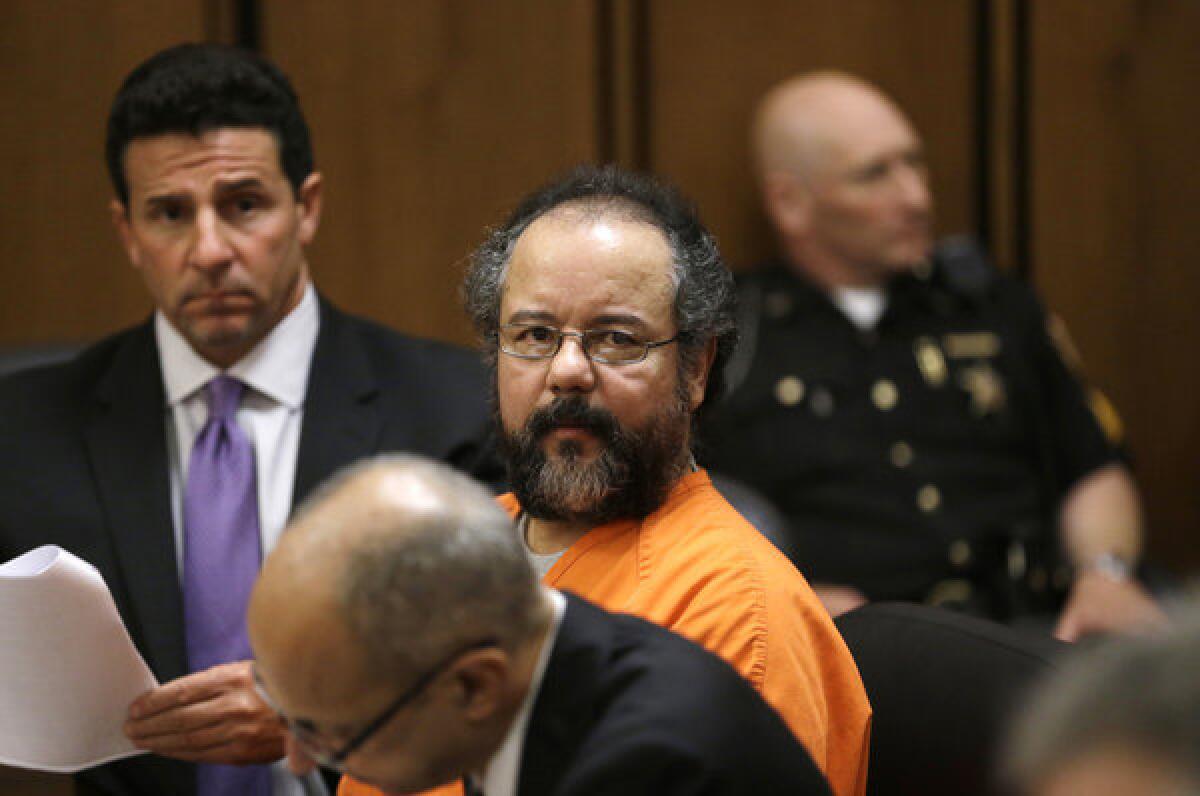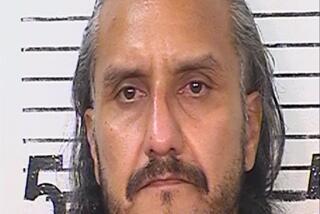Ariel Castro’s suicide: A just end

- Share via
Sometimes, true justice — as opposed to the courtroom kind — arrives so quickly that we are taken by surprise.
The presumed suicide of Ariel Castro, who imprisoned three women for about a decade in his Cleveland home, is a perfect example. His apparently self-inflicted death is the coda to a case that might have dragged on for years, but instead flowed swiftly through the system to this ultimately satisfying conclusion.
In May, Castro’s horrendous crimes were discovered when one of his victims, Amanda Berry, managed to flee the home and alert police, who rescued Gina DeJesus and Michelle Knight, the other women Castro had kidnapped, and Berry’s 6-year-old daughter by Castro.
In July, Castro pleaded guilty to 937 counts, including kidnapping, rape and murder (for inducing miscarriages in Knight by beating her).
On Aug. 1, he was sentenced to life in prison plus 1,000 years. On Aug. 7, his home, which was in foreclosure, was demolished.
And on Tuesday, he hanged himself in his cell in a prison outside Columbus, said authorities, having twisted his bedsheet into a noose.
“I know most of greater Cleveland will be looking on this day as joyous,” Castro’s attorney Craig Weintraub told the Plain Dealer, “but for his family this is anything but. He’s still a human being, this is still a civilized society. There’s still an obligation to prevent our inmates from committing suicide.”
Of course, he is correct, strictly speaking (though it’s likely the joy extends far beyond greater Cleveland).
But it’s hard to argue that society is diminished when a man as despicable as Ariel Castro takes his own life.
In some ways, Castro’s timing was impeccable.
Though he had barely begun his interminable sentence, the criminal justice system had already afforded some measure of solace to his victims, who had the satisfaction of seeing him punished for enslaving them and worse.
And Knight was able to address him directly in court: “I spent 11 years in hell, now your hell is just beginning. I will overcome all this that has happened, but you will face hell for eternity. I will live on, you will die a little every day as you think of the 11 years of atrocities that you inflicted on us.... I can forgive you, but I will never forget.”
Did Castro kill himself because his conscience got the better of him?
Doubtful.
In court, when he had the opportunity to come clean, he took virtually no responsiblity for his grotesque crimes. “I’m not a monster,” he said. “I’m sick.”
He had been victimized as a child, he said. He had become an unwilling sex and pornography addict. He had only beat his first wife “because she wouldn’t quiet down.”
Contrary to accounts of rape in the journals kept by his three victims, he maintained that sex with them was consensual, that there was “harmony” in the home, and that he never beat or tortured anyone.
“I feel like the FBI let these girls down,” he said.
The Ohio Department of Rehabilitation and Correction said Wednesday that it would investigate Castro’s death. That’s appropriate and right, given the circumstances.
But we already know one important thing. Ariel Castro didn’t kill himself out of remorse. He overdosed on self-pity.
ALSO:
Siskiyou County votes to pursue secession from California
Possible pipe bomb blast at Santa Ana hardware store investigated
Authorities trying to determine if burned body is that of missing team
Twitter: @robinabcarian
More to Read
Sign up for Essential California
The most important California stories and recommendations in your inbox every morning.
You may occasionally receive promotional content from the Los Angeles Times.











